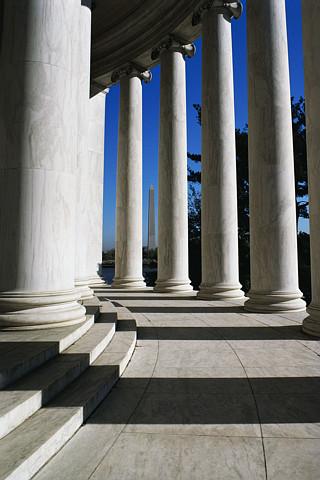NIW Application Process





The National Interest Waiver (NIW) application process involves preparing the necessary documentation, filing the NIW petition with U.S. Citizenship and Immigration Services (USCIS), and waiting for its decision, which may include more than expecting a simple “accepted” or “denied,” as several issues can arise even after USCIS makes a decision.
It is crucial that applicants include all documentation and forms required for an NIW petition. For your reference, read the following steps that describe the NIW application process, from pre-filing to post-receipt of USCIS’s decision, to ensure effective processing of your application.
Pre-filing: What to Prepare
It takes anywhere from one month to several months for applicants to prepare an NIW application. Generally, the timeframe depends on how quickly applicants obtain the necessary documentation. At our firm, we work quickly with our clients and strive to file their cases as soon as possible. The list below includes the forms (at our firm, we prepare these for clients) and documents needed:
- Immigration Petition for Alien Worker (Form I-140);
- Alien Employment Certification Application (Form ETA-750B);
- If the application is being handled by an attorney, a Notice of Entry of Appearance as Attorney or Accredited Representative (Form G-28) is required.
- Petition Letter, addressed to USCIS, which serves as an outline of the NIW application. It essentially explains to the adjudicating officer the reasons the applicant is eligible for and should be awarded an NIW. The evidence summarized or expanded on in the petition letter demonstrates that the applicant meets the legal criteria or requirements of the NIW. A strong and well-written petition letter is crucial for a successful case, and an experienced immigration attorney will be able to draft such a compelling letter. At our firm, we are seasoned and persuasive in presenting our clients’ cases in the most favorable way.
- Supporting Documentation, which comprise the minimum qualifications showing that the alien is either an Advanced Degree Professional or an Alien of Exceptional Ability in the sciences, arts, or business. (Note that the alien does not need to satisfy both of these designations in order to apply for an NIW; further, qualifying in either category, or even both, is merely a minimum requirement for the employment-based, second-preference, or EB-2, category and does not necessarily guarantee a successful NIW case.) Such supporting documentation can include:
-
Letters of recommendation from experts in the alien’s field, which must speak to the Dhanasar three-prong test
-
Evidence of past accomplishments that are described in detail and that show projections of future benefits in terms of U.S. national interests. Additionally, this evidence must show that alien has played a crucial role over the course of his or her work experience
-
Evidence of membership in professional associations
-
For research, evidence of project funding or grants
-
Curriculum vitae, which should include awards, honors, etc.
-
Publications, publication requests, conference presentations, etc.
-
Multiple non-self-citations in journals to show that the alien has impacted the field
-
Invitations and acknowledgment letters for peer review work completed at conferences or for journals
At Zhang & Associates, we will first assess whether you are qualified for an NIW, taking pains to examine all aspects of your documentary evidence, and relying on our decades of experience to evaluate the strength of your potential NIW application. Our experienced attorneys will consult with you to determine the best plan and options for an NIW petition, and ultimately let you know whether an NIW petition is applicable to your case or if you are eligible for other channels, such as EB-1A, EB-1B or labor certification, for your immigration petition. Note that applicants are not necessarily limited to one type of petition: provided that you meet the requirements of any other category or categories, you may be able to apply for more than one petition.
If you’re interested in applying for an NIW, send us your resume to freeevaluation@hooyou.com, or fax it to (713) 771-8368; you can also call us at (713) 771-8433, or visit us at one of our eight locations.
After you retain us, we will:
-
Provide you with a comprehensive list of information and documents you’ll need for an NIW application;
-
Consult with you on how to go about gathering required evidence and determine a strategic plan for your case going forward;
-
Provide sample recommendation letters applicable to your field, which can be used as templates for the initial draft of your letters;
-
Review and edit your letters of recommendation to improve their persuasive value and to tailor them to your specific situation;
-
Guide you as you work to collect all the documents and information needed;
-
Organize all the required documentation for your NIW petition, including the signed recommendation letters;
-
Draft a compelling petition letter that explains in detail how the evidence proves you should be granted an NIW, and send it to you for your review. After we get your feedback, we will finalize the petition letter;
-
Submit the completed petition materials to the proper USCIS Service Center; and
-
Keep in contact with USCIS to check on the status of your pending case.
After you give us your approval, we’ll submit your completed petition package to the proper USCIS Service Center. USCIS will then issue an official receipt notice (you can view a sample receipt notice here), acknowledging that it has received your NIW application. The date USCIS receives a petition package is known as the filing date, which USCIS uses as its “priority date” for your application. Typically, USCIS issues a receipt within a week or two of submission, and we promptly provide our clients a copy of this receipt as soon as we get it.
In general, it takes USCIS between three and nine months from the time an application is filed to process an NIW petition. This is not a hard and fast timeframe, however, since processing times also depend on the particular USCIS Service Center that has jurisdiction, as well as the individual USCIS officer who processes the case.
USCIS can do one of the following after reviewing an NIW petition:
-
Approve the NIW. If your petition is approved, USCIS will mail an approval notice in a Form I-797. (You can view a sample approval notice here.) As you’d expect, this is the most desirable outcome for both you, as the client, and us, as your attorneys.
-
Issue a Request for Additional Evidence (RFE) notice. If the USCIS officer reviewing your case has determined that there is insufficient evidence for approval, the officer can ask you to provide additional evidence to support specific points in your application. RFEs take the form of an official letter. (You can view a sample RFE notice here.) Generally, USCIS allows you up to 84 days to respond to an RFE. At our firm, we’ll promptly respond and submit the additional documentation required for your case.
-
Issue a Notice of Intent to Deny (NOID). In the event the USCIS officer reviewing your case determines that your application should not be approved, or if there is no extra documentation or evidence submitted, the officer can issue a NOID. (You can view a sample NOID here.) Generally speaking, both the guidelines for and documents used in responding to NOID are similar to those for RFE responses. As with an RFE, NOID takes the form of a letter, and USCIS allows up to 84 days to respond. If the client does not respond to a NOID in that time with additional evidence, the case will be denied. Thus, a NOID differs from an RFE in that a case with an RFE may have a chance of approval (albeit a very slim chance), even though no additional evidence has been submitted. If USCIS issues a NOID on a pending case of one of our clients, our attorneys will respond and submit additional evidence to rebut the NOID.
-
Simply deny your application without an RFE or a NOID. In general, an NIW petition with the required initial evidence should not be outright denied. However, if the adjudicating USCIS officer decides that a petition does not contain the basic evidence needed to satisfy the minimum criteria, then the officer can issue a denial notice. (You can view a sample denial notice here.) There have been instances in which USCIS has denied cases that did contain all the required initial documents. In such an event, a petitioner can request that USCIS reopens his or her case.
At our firm, we’ll assist you in the preparation and submission of all the evidence required for your case. As soon as USCIS makes a final decision on your NIW case, we’ll immediately inform you of the result.
Post-USCIS Decision
After your NIW case is approved, and USCIS has mailed you or your attorney an approval notice, the final step is securing your green card. If an immigrant visa number is available and you have not yet applied for an adjustment of status, this is the time you’ll need to do so.
Currently, immigrant visa numbers are available for NIW candidates who were born in a country other than India and China. For aliens who were born in India or China, immigrant visa numbers are not available under the EB-2 category. Accordingly, Indian and Chinese aliens will need to wait a few years or more for visa numbers to become available, and only thereafter can they apply to adjust status. For more information on immigrant visa numbers, please click here.
In the event your NIW case is denied, USCIS will send you an explanation laying out its reasons for denying your application. This correspondence will include information on whether you can file an appeal with the Administrative Appeals Office (AAO). If you decide on appealing USCIS’s decision, you’ll have three options at your disposal:
-
You can appeal USCIS’s denial of your NIW petition if you think the decision was wrong.
-
You can file a motion to reconsider, which requests that your NIW application be reviewed by a different USCIS officer.
-
You can file a motion to reopen your case if you have additional evidence that you did not present in your original petition package or in a subsequent RFE response. (For additional information, refer to Chapter 4 of the Administrative Appeals Office (AAO) Practice Manual.)
In general, after its initial decision, USCIS allows up to 33 days for a petitioner to file an appeal, motion to reconsider, or motion to reopen.
The NIW process is complex and, at times, a bit convoluted. We recommend that you seek the assistance of experienced immigration attorneys. Over the past two decades, we have successfully represented thousands of clients in their NIW cases. If you would like to contact us, please call us at (713) 771-8433 or visit us at one of our seven locations. You can also send us an e-mail at info@hooyou.com. Our superior attorneys will ensure that you receive only the highest quality of service.
Read the USCIS ruling (Matter of Dhanasar) governing NIW here. And for more detailed information about the National Interest Waiver, including minimum requirements and USCIS policies, please click on the relevant links on this page:
- National Interest Waiver (NIW)
- Quick Start Guide to the National Interest Waiver
- New NIW Standards: Dhanasar
- Dhanasar vs. NYSDOT
- Advanced Degree Professional vs. Exceptional Ability
- NIW Application Process
- NIW Supporting Evidence
- Letters of Recommendation
- NIW Documentation
- Meeting the “National Interest” Standard
- NIW Services We Provide
- Frequently Asked Questions about NIWs
- Recent USCIS Developments on NIW Adjudication
- Historical NIW Requirements and Case Analyses
- NIW Appeals and Motions
- Physician National Interest Waivers
- NIW Client Testimonials
- Attorney's Fees
- Articles & News on NIW
Updated 03/23/17




